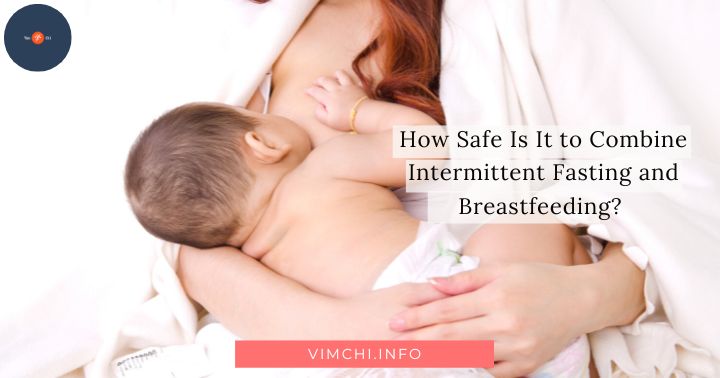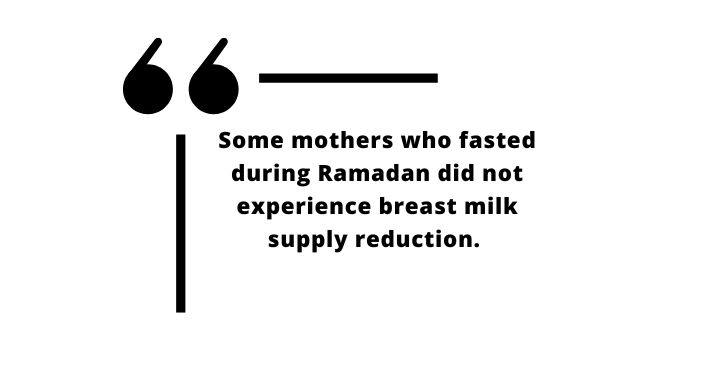
Gaining weight during pregnancy is important to support a developing baby. After giving birth, though, postpartum parents want to immediately lose weight. If you are thinking of losing weight through intermittent fasting, you might wonder if it is safe. Is it safe to combine intermittent fasting and breastfeeding? How long do you have to wait before you can see the weight loss result?
How Safe Is It to Combine Intermittent Fasting and Breastfeeding?
Intermittent fasting is a weight loss plan that involves eating during a set time and fasting during a set fasting time.
For instance, you may only eat during the first 12 hours of the day and fast for the remaining 12. Others want a shorter fast. But some people can go 23 hours without eating. Yes, there are celebrities who are already doing it. Check out this post.
Intermittent fasting may work for many people.
However, if you are breastfeeding, you must know there are no studies that can verify whether or not intermittent fasting is safe while nursing your child.
Keep in mind that when you are lactating, your body requires a lot of nutrients. Intermittent fasting may interfere.
Thus, make sure that you consult with your healthcare provider before you start to follow an intermittent fasting program.
Read: Experts recommend eating 10% to 20% of protein from your oral daily calories.
Intermittent Fasting and Breastfeeding — May Be Safe
As mentioned, there are no scientific studies that can verify how safe this weight loss plan is. You may try this weight loss plan if you can meet your caloric needs.
If you think that it is interfering with your nutritional requirements, then make sure to stop following it.
Intermittent fasting is safe for most people. If you are breastfeeding, it will not harm your baby while you are nursing him/her. But you need to continue feeding your baby.
Make sure that you eat 2,300 to 2,500 calories every day. You should also consume all the nutrients that you need, such as carbs, protein, and fats.
At the start of this plan, you may experience nausea, dizziness, and an upset stomach. You can avoid these symptoms by drinking lots of water. However, if, after drinking the right amount of fluids and you are still experiencing these symptoms, it may indicate that intermittent fasting is not for you.
Indeed, there is not enough data to verify how safe intermittent fasting is when breastfeeding, you may observe nursing parents who fast during Ramadan. Some women who fasted during Ramadan reported having a lower milk supply. Others, however, did not find any difference.
Those women who did report having low milk supply while fasting did not drink enough fluids. It does indicate that when you fast, you also need to drink plenty of fluids.
Shorter fasts may be safer than following one meal a day or fasting for 23 hours. OMAD may not be ideal if you are breastfeeding. However, if you can consume your daily calorie intake within one hour, then you’re good to go.
The most important thing here is to consider your daily calorie requirements. If you don’t meet your calorie needs, it may affect your milk supply.
Read: You can be consistent with this app because it reminds you of your fasting window.
Does Intermittent Fasting Affect Breast Milk Supply?

There is no specific study that can tell whether or not fasting affects breast milk supply. Some mothers who fasted during Ramadan did not experience breast milk supply reduction. Others did encounter it.
In that case, it may not affect the supply short term. However, it may impact the supply if you continue doing it in the long term. It may not reduce milk supply but it may decrease milk production if you fast for long periods.
One reason can be that fasting reduces the fat content in your breast milk. It may also reduce the quality of milk your body produces.
Read: Some people do eat up to 500 calories during their fasting period.
How Long Should I Intermittent Fast While Breastfeeding?
You should only do shorter fasts when breastfeeding. Or you may avoid it while nursing.
However, as long you can consume the daily calorie needs and eat the right amount of nutrients within your set eating window, then you may not have a problem with intermittent fasting while breastfeeding.
If you wish to try it, make sure to eat healthy food. You should include all food groups to ensure that your nutrition quotient is high.
Keto OMAD may not be ideal in this situation. Talk to your doctor if you wish to integrate it into your plan.
You should also keep your body hydrated. Drinks lots of fluids. But limit your coffee intake.
Keep in mind that caffeine may cause dehydration because it is highly diuretic. If you feel thirsty, make sure to drink water.
You may avoid sodas and processed rinks. If you want fruit juices, make sure that they are 100% fruit juices.
Since you are fasting, make sure that you do not exert yourself. You may exercise but you should only do light exercise. Remember that exercise takes a lot of energy. If you feel that your energy is starting to go down, you must rest.
Nursing mothers must get the right amount of sleep. When you fast, make sure that most of your fasting time happens when you are asleep.
Remember though that you must not hasten the weight loss process when you are breastfeeding. Give your body time to adjust.
If you are worried about your gained weight, you can start an exercise program. But you need to ask your healthcare provider to give you the best plan for your condition. Resistance training may be good for you.
As mentioned, intermittent fasting can be safe while you are breastfeeding. However, you have to do it carefully. The most important thing here is enough nutrients and calories. If you cannot get enough calories, make sure to postpone fasting until you are through the nursing stage.
You may also choose a shorter fast if a longer fast interferes with your ability to eat enough nutrients and calories.
Summary
Intermittent and breastfeeding can be done at the same time. But eat the right amount of food, nutrients, and calories. You should also drink a lot of water. Dehydration may reduce your energy levels, thereby, causing headaches, nausea, and other symptoms. You may not have enough energy to breastfeed your child.
Speak Now ... Or Forever Hold Your Peace